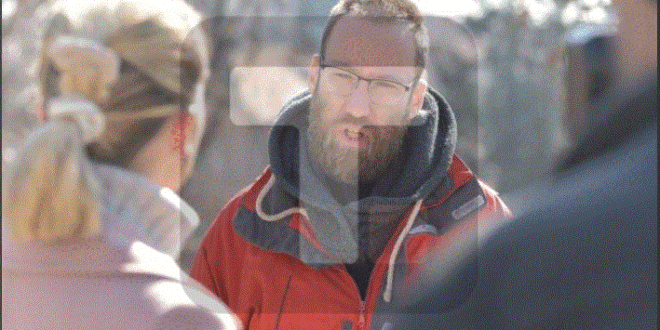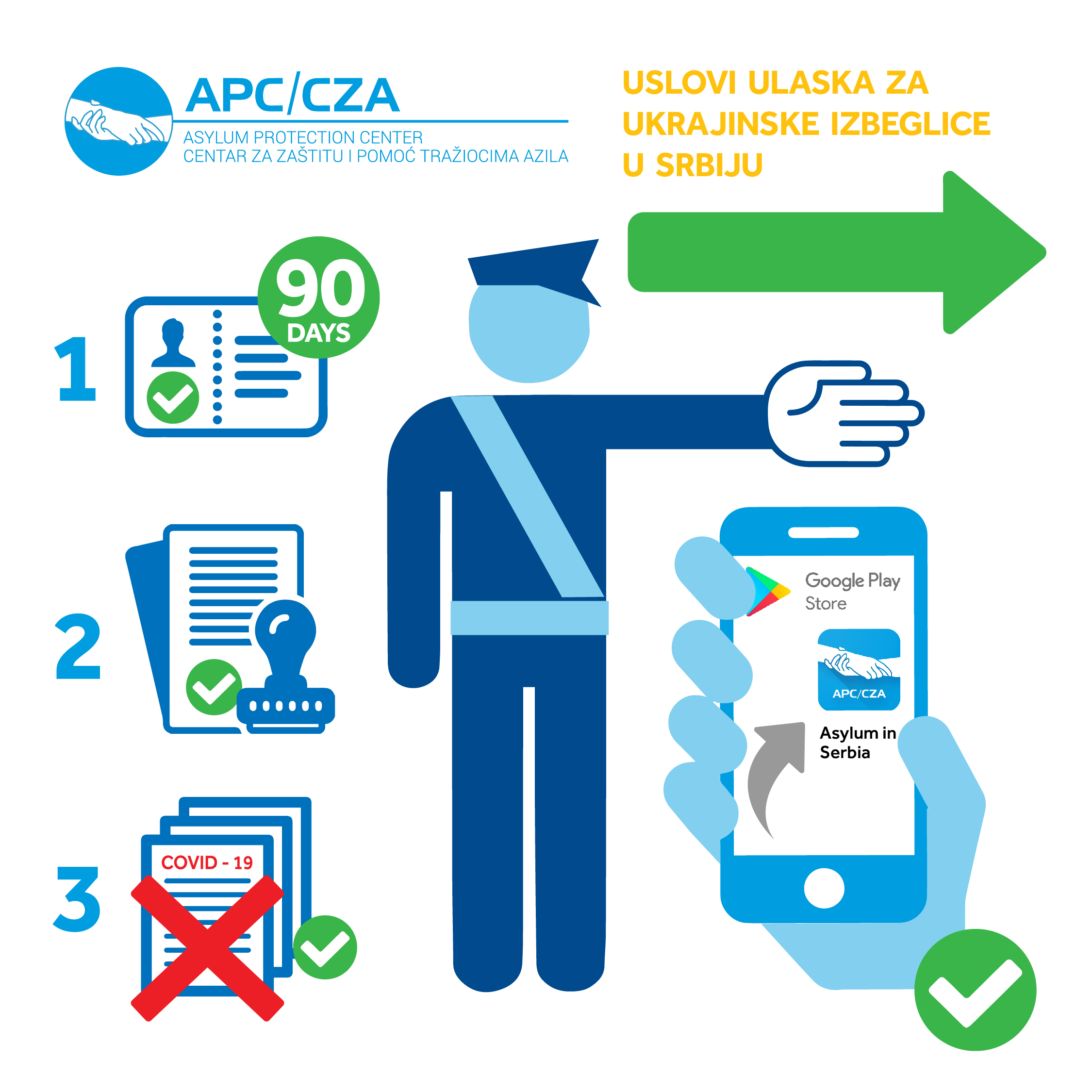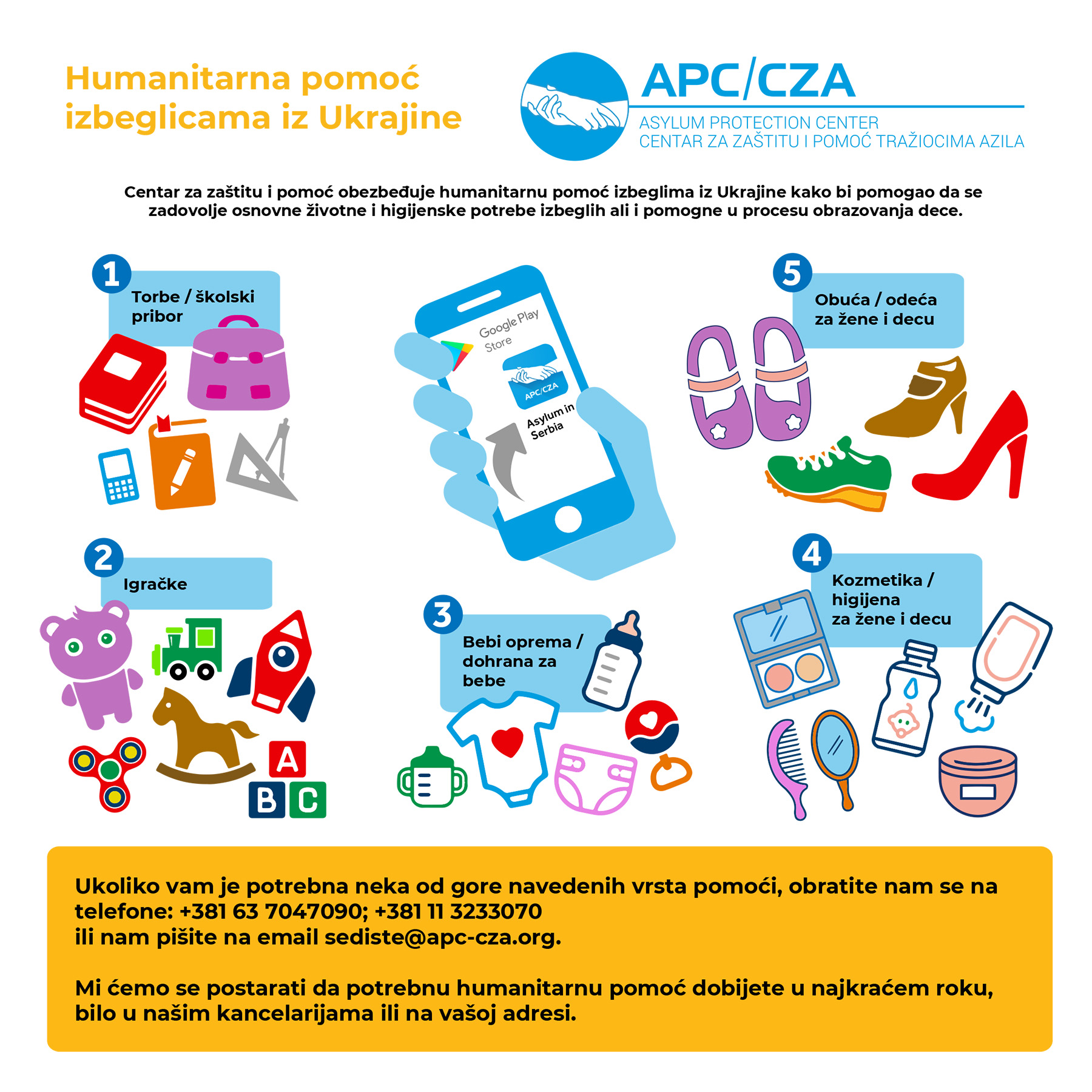Source: Tanjug
Belgrade, 12.03.2022.
BELGRADE: The Asylum Protection Center appealed to the Government of Serbia to adopt Temporary Protection decision for refugees from Ukraine, which would regulate their rights and their position while they are in our country.
Thus, currently more than 2,000 refugees fleeing the war in Ukraine would have the right to stay, to accommodation, to health care, to education for their children, the right to work, to personal documents.
Rados Djurovic from Asylum Protection Center, said today for Tanjug that the number of refugees from Ukraine will increase in the coming period, and pointed out that it is necessary for the state to urgently regulate their position.
“They have the right to stay for 90 days without a visa, but they have no other rights and their position is not regulated in any other way. We appeal for provision of health and humanitarian care and for the reception to be organized in the vicinity or in the urban areas in Serbia, where people can rely on the existing infrastructure “, said Djurovic.
He pointed out that the situation in Europe indicates that other countries are ready to act in a similar way and that many in the region have already passed acts on temporary protection of refugees.
“We already have Hungary, Croatia and Montenegro in the region, which have passed their acts, and a directive on temporary protection has also been launched at the EU level,” Djurovic said, adding that about 15 women and children are currently housed in a camp in Vranje. that hundreds and even thousands of refugees enter and pass through our country daily.
As he notes, Serbia should not waste time, because, he says, it will get into a situation where people are in danger, and especially if their position is uncertain.
“That is why we urgently asked Serbian Government for the appeal to be considered and for a decision to be made as soon as possible, which will make it easier for refugees from Ukraine to stay in Serbia, as well as for institutions to adequately address this problem,” Djurovic said.
He states that the main responsibility lies in the hands of Serbian Commissariat for Refugees and Migration, which, he says, is not acting in proactive manner.
“Now if all these people, more than 2,000 of them, apply for asylum, the system would not be able to provide efficient decision-making on their request,” Djurovic said.
He stated that the refugees from Ukraine are culturally and by temperament close to us, and that they feel that they are in a friendly, Slavic environment.
“It is a novelty and a difference in relation to refugees from Asia and Africa, who have lost everything in their countries and are going to the west of the EU to find their new home and salvation. This may not be the case with Ukrainian refugees, because people still have families and property in Ukraine and hope they would return as soon as hostilities stop,” Djurovic said.
When asked how they are currently being helped in Serbia, Djurovic answered that it is at the level of legal information from the Asylum Protection Center, as well as in a form of focused humanitarian aid to those in need.
“We have developed a mechanism of direct humanitarian aid for people who are endangered, i.e. those who ask for help. The first accommodation in the Serbian Commissariat’s accommodation camps started yesterday, so now it is up to the Commissariat to provide that accommodation and basic living conditions in the reception centers,” Djurovic added.
He says that the refugees in the first wave are mostly staying with friends, relatives, some in hostels, managing somehow on their own.
However, the question arises as to how long they can financially endure on their own. Moreover, newcomers are constantly entering country.
“Sooner or later, even these people will have to receive state aid, it is important to provide them with accommodation in urban places, it is difficult to accommodate them in camps that are very far from urban places,” said Djurovic, adding that there are only 6,000 across the country. places in the camps, of which about 4,000 were filled with refugees from Asia and Africa.
Djurovic emphasizes that the situation in the region is getting very difficult and being closely monitored by APC, and states that, for example, in Hungary and Romania, systems are only now being established, while most of first response was done by local municipalities, citizens, volunteers and local firms.
“The biggest burden of acceptance is borne by citizens, private companies and local governments in Hungary and Romania, and we must be ready because some people can come to us facing with the lack of reception in overcrowded cities and towns there” said Djurovic, who said that the war was increasing the influx of refugees.
“The numbers are extremely large for a very short period. More than 225,000 people passed through Hungary until yesterday, over 100,000 entered Moldova, over 80,000 passed through Romania, over 150,000 to Slovakia …”, stated Djurovic.
He describes the Ukrainian crisis as growing rapidly and without precedent for the recent European past.
“If refugees continue to come and if they do not have the means to bear their own costs, the situation will become very serious,” Djurovic said, answering the question whether Serbia is in danger of a larger number of refugees.
 AzilSrbija AzilSrbija
AzilSrbija AzilSrbija





